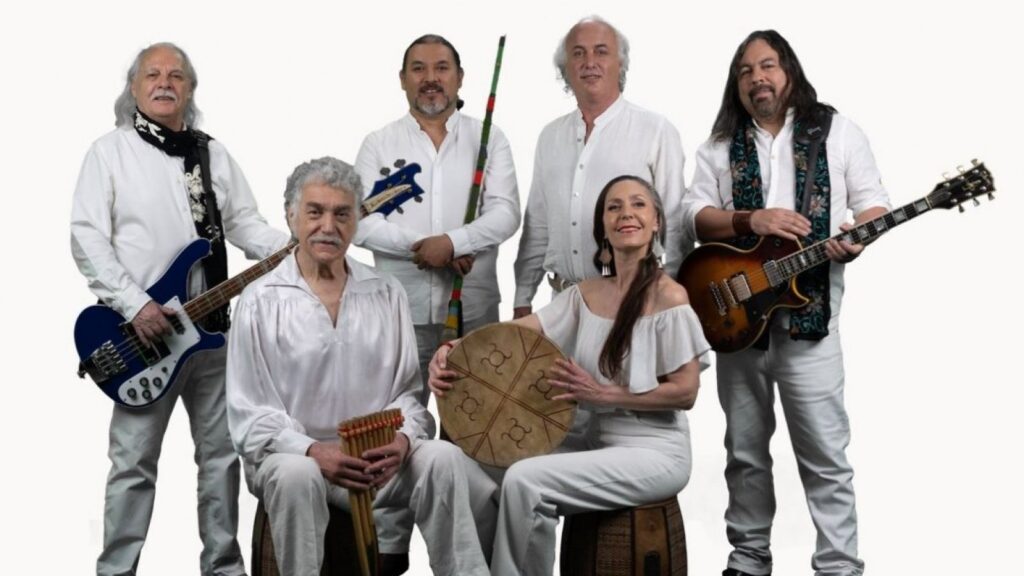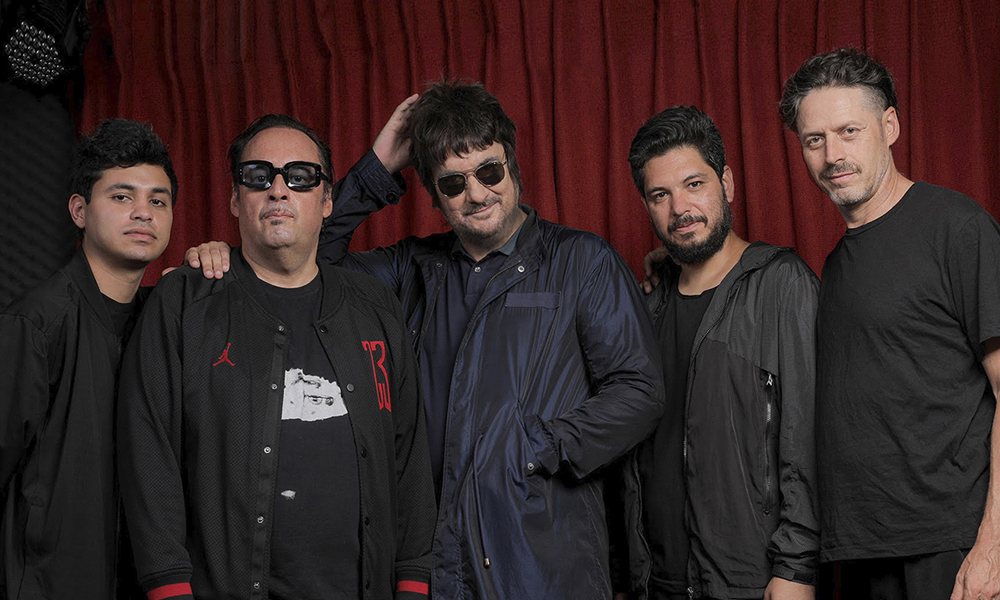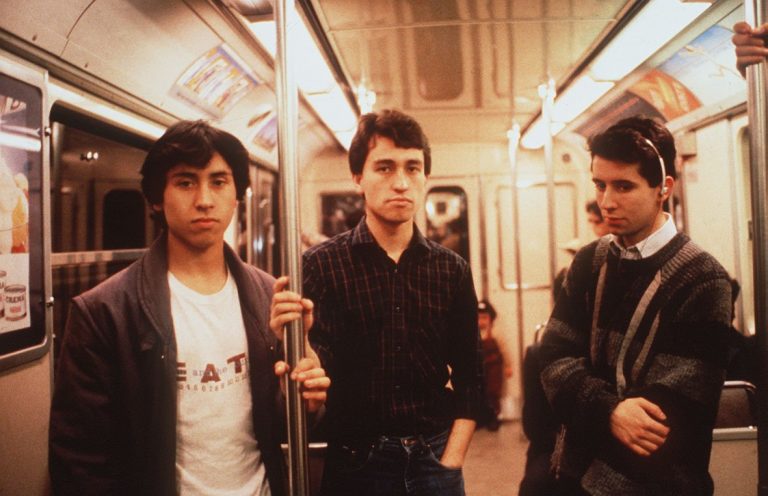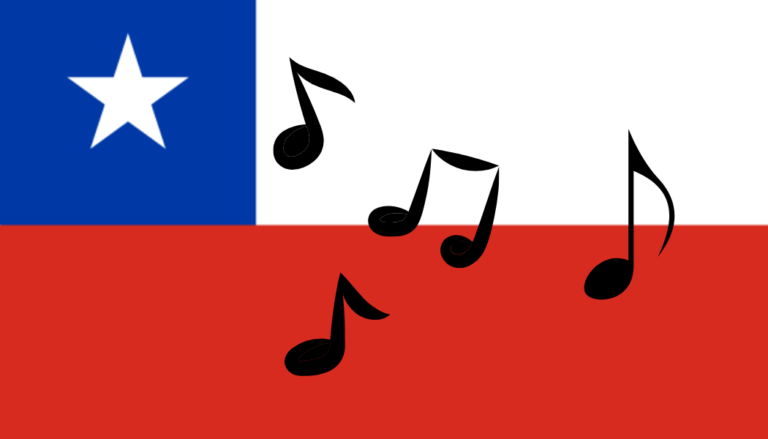Chile’s national day is celebrated on September, 18th. It marks the beginning of the Chilean Independence process, in 1810, from Spain. We usually celebrate this national holiday with a barbecue and our families and friends.
The music that is listened to is cumbia, reggaeton, and other Latin rhythms. But since this is a rock website, I will proceed to make a mini bio of my three favorite Chilean bands and make a list of five of their songs.
Los Jaivas

Chilean band that mixes folk with progressive rock. They were formed in 1963 and are one of the most famous bands in Latin America. Their music is very emotional, linked to the dark times of the Chilean dictatorship, on which they had to flee to Europe. The band has suffered many changes in its lineup due to members’ deaths, but the children of those original musicians took their parents’ place in the band. Los Jaivas consists of a big hippie family of very talented musicians.
The band’s name was originally “High & Bass”, but because they played folk in Spanish, they decided to change their name to a similar sound “Jaivas” (misspelling of Jaibas, crabs in Spanish).
My parents were big Los Jaivas fans. I went to see them playing live, a couple of times, with them. My mom (R.I.P.) was especially super fond of them, so although I love to listen to them, their music it’s bitter-sweet to me, for that reason.
Band Members
- Alan Reale – guitar
- Juanita Parra – drums
- Mario Mutis – bass
- Claudio Parra – piano
- Francisco Bosco – saxophone
- Carlos Cabezas – charango, vocals
The Songs
- Todos Juntos (All Together): refers to the hippie idealism that if we all live on this Earth, together, we should live in harmony and not fight each other all the time.
- Hijos de la Tierra (Children of the Earth), it’s also about living together, in community with us and with the Earth.
- Sube a Nacer Conmigo Hermano (Climb up to born with me, brother). This iconic song is part of a majestic album, “Alturas de Macchu Picchu” (The Heights of Machu Picchu), on which Los Jaivas musicalized a book of poems by the Chilean Poet, Pablo Neruda. Musically is a beautiful masterpiece, each one of its songs. The narrations are done by the Peruvian writer, Mario Vargas Llosa.
- La Poderosa Muerte (The Powerful Death): this song is also part of “Alturas de Machu Picchu”. Very emotive song, that has nothing to envy to any Pink Floyd masterpiece.
- La Conquistada (The Conquered). One of the most beautiful and emotional songs of Los Jaivas. It refers to the nostalgic feeling of missing Chile, while they were exiled to Argentina and thinking of all the atrocities that were occurring in Chile because of the civic-military dictatorship.
Los Tres

The band’s name refers to that they were three members, originally. A rock and jazz trio. Chilean rock band formed in 1987. They are one of the most famous rock bands in Spanish.
Band Members
- Álvaro Henríquez – voice and rhythm guitar.
- Roberto Titae Lindl – bass
- Cuti Aste – keyboards
- Boris Ramírez – drums
- Sebastián Cabib – lead guitar
I was a big fan of the 90s Latin rock, great Chilean and Argentinian bands that mostly sing in Spanish. Those were my teenage years, going to school. And I went, at that time, with some of my classmates to see Los Tres live, in my city, La Serena (a city in the north of Chile). It was one of my first rock concerts.
The Songs
- La Espada y la Pared (The Sword and the Wall), is a rockabilly masterpiece, with intricate lyrics.
- Un Amor Violento (A Violent Love). Ballad.
- El Aval (The Guarantor) is a rock song about a sketchy guarantor.
- He Barrido el Sol (I Have Swept Away the Sun), is a beautiful track.
- Dejate Caer (Let Yourself Fall), is another beautiful and poetic track by Los Tres.
- Bonus Track: ¿Quién es la Que Viene Allí? (Who is the One Coming There?), it’s a cover song. A foxtrot of a Chilean Singer-Songwriter, Roberto Parra.
Los Prisioneros

(The Prisoners). Chilean punk rock band. Formed in 1983, with a potent-simple sound and politically charged lyrics that were against the Catholic Church, Pinochet’s dictatorship, and social criticism of the Chilean establishment. Their music is still used in demonstrations in Chile and in Latin America. They’re our Rage Against The Machine type of band but with a sound inspired, mainly, by The Clash.
Band Members
- Jorge González – vocals, bass
- Claudio Narea – guitar
- Miguel Tapia – drums
The Songs
- El Baile de los que Sobran (The Dance of Those Who Are Left Over), is a protest song about the differences in Chilean society and the lack of opportunities for the lower class.
- We Are Sudamerican Rockers, a sarcastic view of the Chilean music scene.
- Corazones Rojos (Red Hearts), is an ironic song about machismo, that sadly still lingers in Chile.
- Estrechez de Corazón (Narrowness of Heart), is a synth-pop masterpiece about toxic love.
- Tren Al Sur (Train to the South), is a song about a nostalgic train trip to the South of Chile and all the memories that this travel brings.
These were some samples of my culture, from a musical point of view. Of course, there are a lot of other Chilean bands and musicians, but these are the closest to my heart. And I think they were and are historically and influentially important, still, and for many years to come.
